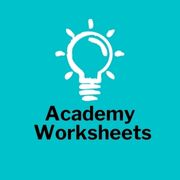What are Kindergarten Worksheets?
Kindergarten Worksheets are necessary for children to learn effectively. As a parent or teacher, you may be wondering about the benefits of using worksheets. These worksheets can help young children continue to develop their fine motor skills, improve their cognitive abilities, and prepare them for future academic success.
By engaging with these worksheets, children can also build their confidence and sense of independence. So if you’re looking for a fun and effective way to support your child’s learning, consider incorporating kindergarten worksheets into their daily routine.
Math Kindergarten Worksheets:
Early Math
Early math includes counting, recognizing numbers, tracing, and shapes
Telling Time
Learn how to tell the time to the hour, to the half hour and from digital to analog. Some benefits of learning to tell time and practicing with it include improved time management skills, better organization and planning abilities, and increased punctuality. Additionally, knowing how to read and tell time is essential for a variety of daily activities, such as catching transportation or arriving to appointments on time.
Simple Addition
Simple Subtraction
Tracing Numbers and Tracing Letters
Tracing Numbers worksheets from 1 – 10. Tracing numbers and letters is important for kindergarteners to learn because it helps them develop fine motor skills, improves hand-eye coordination, and lays the foundation for reading and writing. Additionally, it aids in the understanding of letter and number shapes, leading to better recognition and recall during early learning stages. Overall, it plays a crucial role in building a strong foundation for academic success later in life.
Reading, Writing and Phonics Kindergarten Worksheets
Consonants
Learn the consonants and their phonics with these fun worksheets. Consonants are the letters of the alphabet that are not vowels. These letters include B, C, D, F, G, H, J, K, L, M, N, P, Q, R, S, T, V, X, Z. Learning consonants is important for young people as they form the building blocks of many words and are necessary for proper spelling and pronunciation.
Letters of the Alphabet
We have worksheets for every letter of the alphabet – A thru Z. It is important for 1st graders to learn the letters of the alphabet because it is the foundation for reading and writing. Knowing the alphabet allows them to understand the sounds that letters make and how they can be combined to make words. This skill is crucial for their future academic and personal success.
Short Vowel Sounds
Short vowel sounds are the sounds that are made by the letters “a”, “e”, “i”, “o”, and “u” when they appear in a word.
Sight Words
These are the first 100 most frequently recurring words in the English language.
Other Categories:
Colors
Colors are important for kindergarteners to learn because they help with cognitive development, creativity, and communication skills. Additionally, learning colors can help with object recognition and categorization.
Days of the Week
Learn the seven days of the week. It is important for 1st graders to learn the days of the week because it helps them establish a sense of routine and organization, which are important skills for their general development. Additionally, understanding the days of the week allows them to better comprehend and manage their own schedules and activities, such as knowing when school days and weekends occur.
Months of the Year
Learn the 12 months of the year, January – December. It is important for 1st graders to learn the months of the year because it helps develop their understanding of time and sequencing. This foundation helps them build a framework for later learning in science, social studies, and language arts. Additionally, it helps them become more familiar with the world around them and communicate more effectively with others.
Printable Lined Paper
Print out lined paper for kids and adults. We have two different versions for you,
Shapes
It is important for children to learn shapes because it helps with their cognitive development and spatial awareness. Understanding shapes can also help with early math skills and problem-solving abilities.
